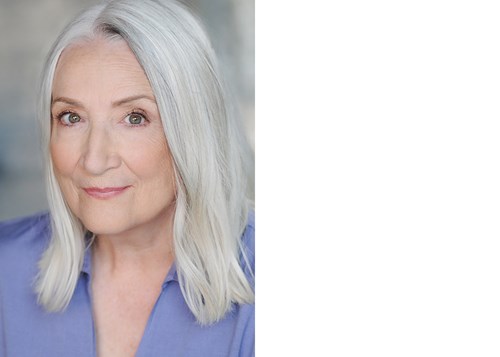
Wintertime digital program
Berkeley Repertory Theatre presents
Wintertime
By Charles L. Mee
Directed by Les Waters
November 12–December 19, 2021
Roda Theatre
We acknowledge that Berkeley Rep sits on the unceded ancestral lands of the Ohlone people.
Meet the Company | Meet the Creative team | Discover Wintertime | What’s New at Berkeley Rep | Staff and board
Welcome! And welcome back. I have been waiting a very long time to say those words to you… what a joy to finally be able to.
When we stepped out of this theatre on March 16, 2020, not one of us could have known that it would be almost 20 months before we had the opportunity to gather again in this space that we hold so dear.
But we are here today, together. I am deeply grateful to everyone whose generosity brought us to this place — to our audience members who have once again committed themselves to the particular delight of this shared experience; to our staff members who have reimagined how to make theatre safely and more equitably; to the Board of Berkeley Rep, whose clear thinking and profound care for this company have helped to sustain us; and to the intrepid artists who have taken on so many experiments in form over the last many months, and have now stepped back into these rooms with such openness and grace.
I am particularly pleased to welcome you back with Wintertime! What a delight to come together now with Les Waters, whose relationship to Berkeley Rep goes back many years, and his long-time collaborator, Chuck Mee, in the company of this glorious band of actors, many of whom have been part of Bay Area theatre for decades. It seems almost too perfect that it’s a play about family, all of whom end up — somewhat against their will — crowded into a remote house, together. Many of us have had far more than our share of togetherness over the last 18 months. And some of us have had more solitude than we would wish.
We long for connection, even while it is that very intimacy that has made us drive each other crazy over the last year. We yearn to move about freely, even while we are aware of the risks. And Chuck’s celebration of characters who live with those contradictions, and live with them at full emotional volume, is hugely, delightfully theatrical. As the character of Bob in Wintertime says, “What eros means is a desire for something that is missing... What Plato said was desire can only be for something that is lacking. If you don’t lack it, you can’t desire it.” Over this last 20 months, we have certainly all lacked this — theatre.
The last year or so has given me plenty of time to think about theatre — how it can bind a community together, the way in which it meets our primal need for fellowship, the very specific artistry it requires, who gets to make it, how can we make it accessible to more people, both on and off stage, and why we absolutely must fight to save it. One of the things I love the most about this particular art form is the act of shared creation. What is initiated in the mind of the playwright is brought into being in collaboration with a director. A creative team is assembled, and we begin to accrue the skillful imaginations of the designers who will render this world in three dimensions. Next come the cast who will embody, interpret, and give human form to the impulses of the writer. But it isn’t fully realized until it is in the presence of an audience. And that dynamic, that partnership that includes artists and audience alike, creating something ephemeral together, in real time, is unlike anything else. It has the capacity to challenge us, to delight us, to teach us about the world, about the experiences of people who may be wildly different than us, and equally about the hidden recesses of our own hearts.
So finally, here we are again. Together. In this relationship to each other. In the presence of this story. I’m so thankful to be here with you.
Warmly,
Johanna Pfaelzer
Even under the most normal of circumstances, the mad dash from Thanksgiving to New Year’s tends to be a time of reconnecting with family and friends. But as we all know, this year is not like other years. As we emerge, with increasing frequency, from the isolation of our pandemic shelters, the meaningfulness of being together in shared spaces brings a heightened delight even as it still comes with some residual anxiety. After all, we are not that many months past being almost completely shut down. And yet here we are. You have chosen to join us, all of the Berkeley Rep staff and board, along with this heroic group of artists, to engage with each other in this elemental act of communal storytelling. For those of us who simply love the making of and the seeing of theatre, this has been so long in coming. Throughout the months that this pandemic dragged on, the recurring mantra on our Zoom calls, whether with board or staff, actors or carpenters, has been how much we have all missed being in a theatre, in a rehearsal hall, with an audience.
We had originally thought that we would already be open, with Christina Anderson’s new play about the integration of Kansas City’s swimming pools. You will still get to see the ripple, the wave that carried me home when it concludes this season in 2022. But how serendipitous it has proven to be that we open our doors with a production that showcases so many artists with whom we share a long history. Chuck Mee has provided me with some of my favorite nights in the theatre. Les Waters had so much to do with shaping our legacy of new play development. The designers on this team have brought their own magic to dozens of Berkeley Rep productions. And so many of the Bay Area actors whom you will see on stage tonight have been part of our rich history. It feels right and good that we should welcome them back.
Thank you, our audience, for being here with us. To those of you who renewed your tickets early and to those of you who sustained us with your donations during this time, I can say without a hint of hyperbole that we would not be here without you.
During all that time when we could not make art, we were busy. We were revisiting our mission and values to be sure that when we reopened, we would be the company we want to be. We were investing in our future by commissioning new work. We used this time to make repairs and perform upgrades to our infrastructure. We began to plot a course to eventually achieve carbon neutrality. We redefined what it means to be an institutional citizen of a complex and diverse community. We radically expanded our ambitions for bringing theatre to thousands of schoolchildren throughout northern California. And we did the deep soul searching to understand what it would mean to actively break down the exclusionary practices that have kept many people of diverse backgrounds from thriving in and participating fully in the life of this company. Most of all, though, we recommitted ourselves to making exceptional work, even in an age of COVID.
As a result of all of this pandemic-inspired ‘housecleaning,’ you will begin to experience some changes in months to come. Most immediately, you are reading this on your phone or another device rather than receiving a paper program upon arrival. This is just one of those simple ways we can reduce our carbon footprint, respond to continuing COVID unease, and share the most up-to-date information with you. For some this will be unsettling, but we hope that over time the advantages will become obvious to all of you. For those who are still uneasy about returning to the theatre, we have taken what we learned about new technologies and used that to create the digital insurance we now offer to our Rep 7-Play subscribers — the opportunity to exchange your tickets for virtual access to the show. You might want to keep an eye on our website, as we will continue to roll out changes over time. In particular, our COVID-19 policies will continue to evolve as local, state, and federal regulations shift.
With this reopening, we are committed to achieving our same high standards of quality. We are also committed to making some big changes. For us to grow we must evolve. During the next few months we will share details about the ways in which Berkeley Rep intends to more fully live up to our values. While change can be unsettling, many of you have seen us through innumerable changes in the past. We are counting on you to join us as we lean into the future.
Wishing you and yours a joy-filled holiday season.
Susie Medak
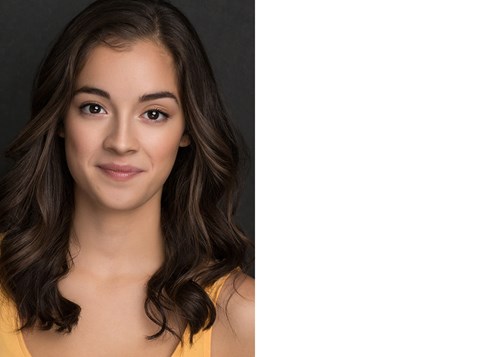
Carmen is thrilled to be making her Berkeley Rep debut. Recent credits include Our Dear Dead Drug Lord (WP Theater/Second Stage), Our Town (Barnstormers Theatre), ArsNova ANT Fest 2021, Night of the Iguana (LaFemme Theatre Productions), Scorch (OutCast Productions), Henry IV (Rutgers Theatre Company), and Richard II (Shakespeare’s Globe Theatre). TV: Law & Order: SVU. BFA: Rutgers University. (she/her/hers)
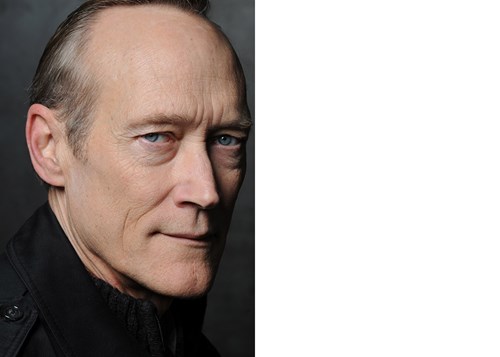
A former core company member and associate artist at Berkeley Rep since 1984, James most recently appeared in Macbeth, Pericles, Three Sisters, The People’s Temple, Fête de la Nuit, and Lieutenant of Inishmore. This will be James’ 37th show at Berkeley Rep. An associate artist with California Shakespeare Theater, he’s appeared in over 30 productions there. Other credits include work at San Jose Repertory Theatre, Aurora Theatre Company, Marin Theatre Company, Mark Taper Forum, The Old Globe, the Oregon Shakespeare Festival, Yale Repertory Theatre, Santa Cruz Shakespeare, the Huntington Theatre Company, the Intiman Theatre, and American Conservatory Theater, appearing in many productions there as well as playing Scrooge for 13 years. This past year he co-founded the Actors Reading Collective, which has an impressive roster of Bay Area actors as well as actors across the nation and which features many familiar faces along with many new ones. Screen credits include the feature films The Rainmaker and Metro, the independent films Singing and For the Coyotes, and the series Nash Bridges. James is the recipient of many San Francisco Bay Area Theatre Critics Circle Awards, including the 2007 Award for Excellence in the Arts and the 2013 Lifetime Achievement Award. In 2010, he was named a Ten Chimneys Foundation Lunt-Fontanne Fellow. (he/him/his)

Nora has previously worked at Berkeley Rep in Haroun and the Sea of Stories, as well as several collaborations at The Ground Floor. She was last seen at Portland Center Stage in 9 Parts of Desire and looks forward to a spring production of UNSEEN, by Mona Mansour, at Oregon Shakespeare Festival. Nora is a Resident Artist at Golden Thread Productions and a company member of Campo Santo and Playground. In addition, she has acted with Aurora Theatre, Crowded Fire Theater, Magic Theatre, foolsFURY, Traveling Jewish Theatre, Theatre Rhinoceros, Shotgun Players, the San Francisco Shakespeare Festival, and African American Shakespeare Company, among others. In 2013, Nora founded a performance company called Affinity Project with Atosa Babaoff, Beatrice Basso, and Emily Hoffman. She currently serves as the President of the Board of Trustees with Golden Thread and is on the MENATMA Steering Committee. (she/her/hers)
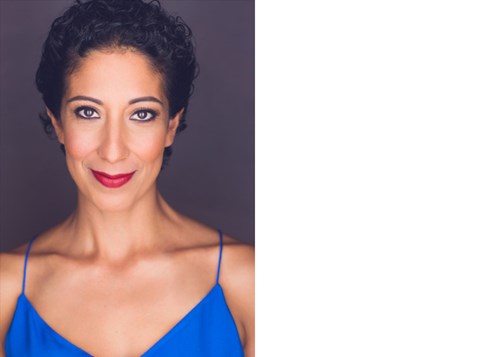
Sarah is a bicoastal actress now based in her hometown, San Francisco. A three-time Drama Desk Award nominee, she is passionate about new works and has developed roles with Manhattan Theatre Club, The Roundabout, The Public Theater, Playwrights Horizons, and many other Broadway and off-Broadway companies. Recent theatre highlights include Seascape (American Conservatory Theater, Pam MacKinnon, BATCC nomination), Sweat (ACT, Loretta Greco), We Swim We Talk We Go To War (Golden Thread Productions, Evren Odcikin), The Gangster of Love (The Magic Theatre, Loretta Greco), Swimmers (Marin Theatre Company, directed by Mike Donahue; Theatre Bay Area Award nomination), No One Is Forgotten (The Rattlestick, Winter Miller), and Water by the Spoonful (The Old Globe, directed by Edward Torres). Her television and film credits include: FBI, For Life, 13 Reasons Why, Succession, Pose, Danny DeVito’s Curmudgeons, Are We There Yet?, The Green, Sex and the City, Law & Order, and Avatar. She is a proud graduate of NYU’s Tisch School of the Arts and a member of LAByrinth Theater Company. (she/her/hers)
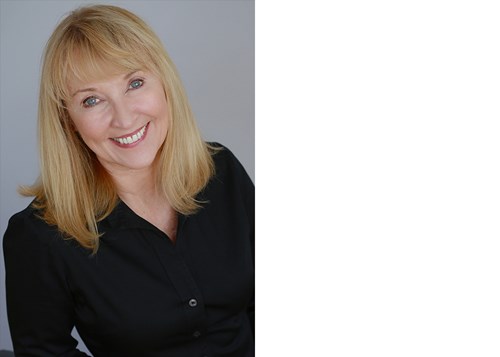
A veteran of many Berkeley Rep plays, Lorri’s favorite roles include Masha in Vanya & Sonia & Masha & Spike by Christopher Durang; Rachel in Reckless and Libby in Blue Window, both by Craig Lucas; Gwen in Finn in the Underworld by Jordan Harrison; being part of the company of Chuck Mee’s Fêtes de la Nuit; and Becky in Tooth of Crime by Sam Shepard. Other favorites: Queen Elizabeth, Richard III, California Shakespeare Festival; Olga, Three Sisters, American Conservatory Theater; Ella, Curse of the Starving Class, The Wilma Theatre, Philadelphia; Jackie, Shoot Me When… by Ruben Grijalva, San Francisco Playhouse; every role played in Caryl Churchill’s Cloud 9, Top Girls, and Fen during 10 years as a company actress with SF’s Eureka Theatre; and Harper Pitt in Angels In America (a role she originated) at the Eureka and the Mark Taper Forum in LA. Other regional and international credits include La Jolla Playhouse, Birmingham Rep (England), London’s Barbican Theatre, Actors Theatre of Louisville, SF Playhouse, The Magic, Aurora Theatre, Marin Theatre Company, The Rave Festival (NYC), and San Jose Rep. Ms. Holt also performs solo shows about literary women: Colette Uncensored, which she co-wrote with Zack Rogow (The Marsh in SF and Berkeley, as well performances in NYC, London, and Portland), and most recently Who Killed Sylvia Plath by Lynne Kaufman, winner, Best Full-Length Performance at the Marsh International Solo Fest 2020. She will reprise Colette in early 2022 at San Francisco’s newly re-opened Presidio Theatre. (she/her/hers)
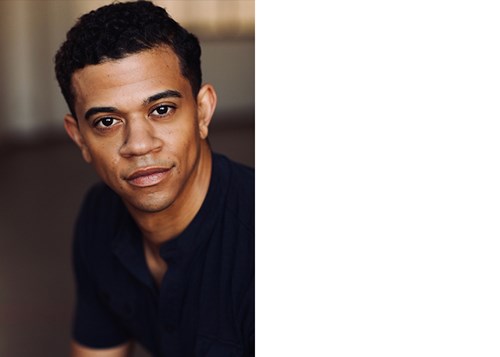
Micah is excited to be making his Berkeley Rep debut and relishes the opportunity to be back in the Bay Area. Credits: (off Broadway) FDR and the Jews/Baryshnikov Art Center; (regional) Vanity Fair u/s (American Conservatory Theater), Christmas Carol (ACT), Detroit ’67 (Chautauqua), Romeo and Juliet (Chautauqua). T.V: Halston. 2019 Graduate American Conservatory Theater MFA. Love you Mom and Dad. (he/him/his)
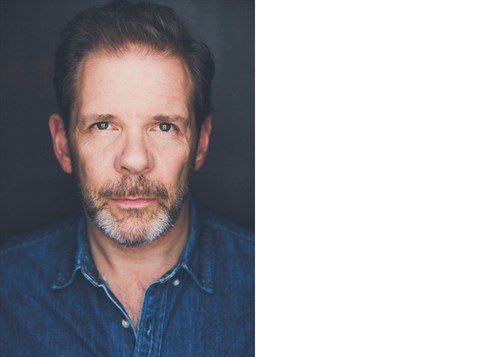
Thomas has appeared at Berkeley Rep in Troublemaker, Three Sisters, and Tragedy: A Tragedy. Broadway credits include the recent West Side Story, The Nap, The Crucible, and In the Next Room (or The Vibrator Play). Among his many off-Broadway credits are Eureka Day, Dance Nation (Drama Desk Award), The Amateurs, A Month in the Country (Calloway Award), 10 Out of 12 (Drama League nomination), Travels with My Aunt, The Lady from Dubuque, Venus, The Temperamentals (Drama Desk Award), and several collaborations with director Daniel Fish. His collaborations with director Ivo van Hove away from Broadway include The Misanthrope and The Little Foxes (in New York) and A View from the Bridge (an Ahmanson/Kennedy Center coproduction). He made his film debut in the title role of Hal Hartley’s Cannes prize-winning Henry Fool, and recent feature film credits include this year’s Scenes from an Empty Church and Cryptozoo. He has also been seen in such movies as Eternal Sunshine of the Spotless Mind, The Legend of Bagger Vance, Burn Country, Dedalus, and two features with Bay area artist Lynn Hershman Leeson, Strange Culture and Teknolust (both opposite Tilda Swinton). (he/him/his)
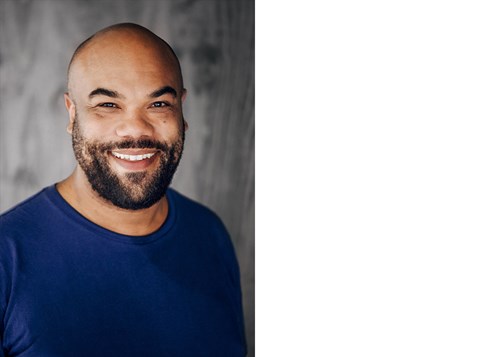
Broadway: One Man, Two Guvnors; Passing Strange. Off Broadway: Merry Wives, A Midsummer Night’s Dream, Henry V, Twelfth Night, Romeo and Juliet, The Comedy of Errors, Pericles (Public Theater/New York Shakespeare Festival); Where We Stand (Women’s Project); Passage (Soho Rep); The Death of the Last Black Man in the Whole Entire World (Signature Theater Company); Mankind (Playwrights Horizons); Gone Missing (City Center Encores!); The Glory of the World (BAM); Marat/Sade (Classical Theater of Harlem). Regional: Repertory Theater of St. Louis, Shakespeare Theatre Company, Hudson Valley Shakespeare Festival, Actors Theatre of Louisville, Barrington Stage Company, American Conservatory Theater, Dallas Theater Center, California Shakespeare Theater, Magic Theatre, Triad Stage, Cincinnati Shakespeare Company, Crossroads Theater Company, among others. Film: The Amazing Spider-Man 2, Medal of Victory, Bee Season. Education: MFA, American Conservatory Theater; BFA, University of Evansville. Other credits: Member of Project Number One at Soho Rep for the 2020/21 season and serves on the acting faculty at The Playwrights Horizons Theater School/NYU. (he/him/his)
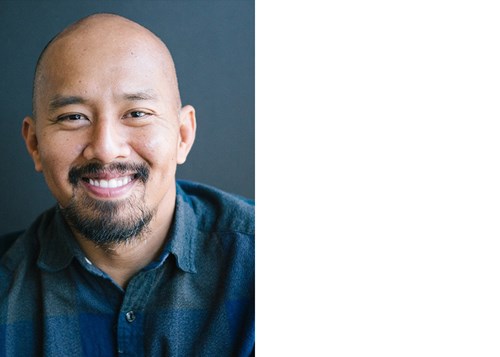
Jomar was most recently seen as Gordon Hirabayashi in Hold These Truths and Mark in Art at San Francisco Playhouse, as well as DJ Loki in Today Is My Birthday (Theater Mu). At American Conservatory Theater he played Mr. Botard in Rhinoceros and Bob Cratchit in A Christmas Carol. Other credits at ACT include Playwright and others in Vietgone, Fortinbras in Hamlet, Fortunado in Monstress. Bay Area credits include George in The Language Archive (TheatreWorks); Actor 1 in King of the Yees, Actor 3 in Tiny Beautiful Things, Daniel in You Mean to Do Me Harm (San Francisco Playhouse); Quang in Vietgone (Capital Stage Company); Banquo in Macbeth, Jacques in As You Like It, Life Is a Dream, and other roles in Everybody, and The War of the Roses (Cal Shakes); The Happy Ones and Dogeaters (Magic Theatre). Jomar is a recipient of a Bay Area Theatre Critics Circle Award for Principle Actor in a Play, and TBA Award for Outstanding Performance in a Featured Role. He earned a Master of Fine Arts degree from ACT. (he/him/his)
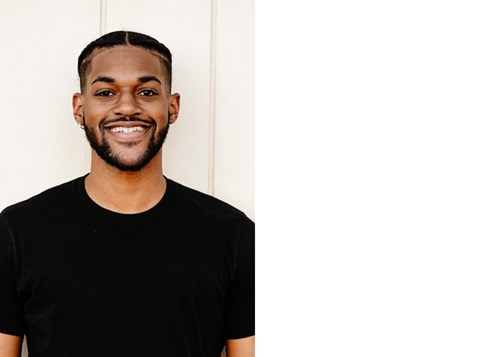
Tre’Vonne is delighted to make his debut at the infamous Berkeley Repertory Theatre! He is a local actor based out of Oakland, CA and has most recently worked with Aurora Theatre Company where he appeared in Exit Strategy. Tre’Vonne has appeared in Kill Move Paradise with Shotgun Players, as well as We Swim, We Talk, We Go to War at Golden Thread Productions. He would like to thank his family for their continued support and unwavering belief in him! (he/him/his)
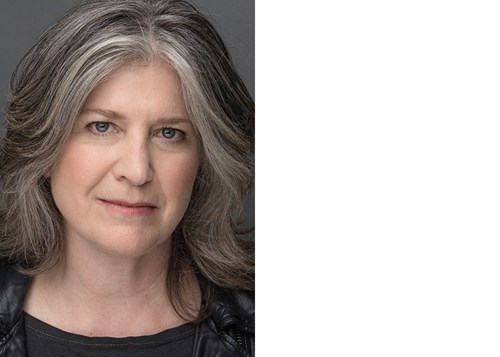
Nancy is delighted to return to Berkeley Rep where she appeared in The Pillowman, Hedda Gabler, and Kabuki Medea, and has participated in several Ground Floor development workshops. She has performed and directed extensively in regional theatres, including American Conservatory Theater (ACT), California Shakespeare Theater, Oregon Shakespeare Festival, Aurora Theatre Company, Shotgun Players, Center Repertory Theatre, TheatreWorks, Shakespeare Santa Cruz, and Jewel Theatre. A former company member of ACT and associate artist with California Shakespeare, Carlin is a member of PlayGround. A theatre arts lecturer with SJSU and UC Berkeley, Carlin holds a BA in comparative literature from Brown University and an MFA in acting from ACT. Ms. Carlin is a member of AEA, SAG-AFTRA, and SDC. She recently played Margrethe Bohr in Copenhagen with Indra’s Net Theater. Nancy co-authored the musical Max Understood, co-produced the film Haiku Tunnel, and can be seen in the newly released Eleanor Coppola film, Love is Love is Love. nancycarlin.com (she/her/hers)
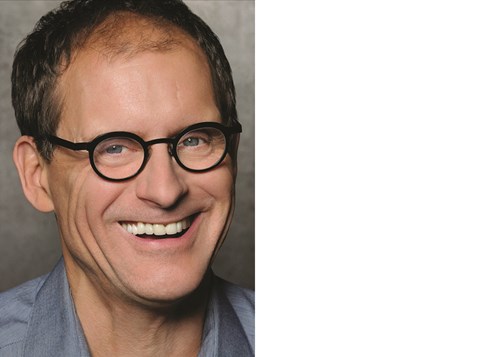
Berkeley Rep: Vanya in Vanya and Sonia and Masha and Spike, Adam Butler in The Intelligent Homosexual's Guide to Capitalism and Socialism with a Key to the Scriptures. American Conservatory Theater: former core company member and associate artist, nearly 50 productions, most recently Trouble in Mind; Cal Shakes: 15 productions; performances for San Francisco Playhouse, Magic Theatre, and Marin Theatre Company. Broadway: The Real Thing, The Real Inspector Hound; other New York credits include: Cafe Crown (Public Theater); Holy Terror, A Life In The Theatre (off-Broadway). Many productions at regional theatres across the country. Television credits include The Sopranos and Law & Order. Training: The Juilliard School, The Barrow Group School. anthonyfusco.actor (he/him/his)

Regina is a native Bay Area actor, singer, and educator from Oakland, CA. She is most passionate about the new works process and has developed roles with Cutting Ball Theater, Word for Word SF, San Francisco Shakespeare Festival, Central Works Theater, and the Iowa New Play Festival. Regina was last seen in The Winter's Tale at California Shakespeare Theater. Other Bay Area credits include Retablos (Word for Word SF), Utopia (Cutting Ball Theater), As You Like It, A New Musical (San Francisco Shakespeare Festival), Women Laughing Alone with Salad (Shotgun Players), Richard III (African American Shakespeare Company), Strange Ladies (Central Works), Love Sick, A New Musical (Jewish Circle Theatre), and Othello (Marin Shakespeare Company). Regina is a proud HBCU alumni from Clark Atlanta University, a graduate from the University of Iowa's MFA Acting program, and a resident artist at the San Francisco Shakespeare Festival. reginamorones.com (she/her/ella)
In the past, Charles Mee’s plays Big Love and Fêtes de la Nuit were performed at Berkeley Rep, both directed by Les Waters, and now here is Wintertime, directed by Les Waters. Charles Mee has also written True Love and First Love, bobrauschenbergamerica and Hotel Cassiopeia, Orestes 2.0 and Trojan Women: A Love Story, among other plays — all of them available on the internet at charlesmee.org. His plays have also been performed at the Brooklyn Academy of Music, American Repertory Theater, New York Theatre Workshop, The Public Theater, Lincoln Center, 2nd Stage, La MaMa, the Humana Festival, Steppenwolf, and other places in the United States as well as in Berlin, Paris, Amsterdam, London, Brussels, Vienna, Istanbul, and elsewhere. He was honored with a full season of his plays at the Signature Theatre. Among other awards, he is the recipient of the Award of Merit in drama from the American Academy of Arts and Letters, two Obies, of a Laura Pels Award, the Booth Award, and of the Richard B. Fisher Award. His work is made possible by the support of Jeanne Donovan Fisher and Richard B. Fisher. (he/him/his)
Les Waters is an Obie Award-winning director and was associate artistic director at Berkeley Rep from 2003-11. At Berkeley Rep, his productions included Big Love, Fêtes de la Nuit, Eurydice, In the Next Room (or The Vibrator Play), Yellowman, A Doll’s House Part 2, The Lieutenant of Inishmore, Red, Concerning Strange Devices from the Distant West, Girlfriend, and The Pillowman. His productions have been seen on Broadway — In the Next Room (or The Vibrator Play) (2009), and Dana H (2021) — off Broadway, and at many regional theatres. From 2012-18, he was artistic director of Actors Theatre of Louisville. From 1995-2003, he led the MFA directing program at University of California, San Diego. In the last 10 years, his productions have ranked amongst the year’s best in The New Yorker, the New York Times, Time Out New York, Time Magazine, USA Today, and The Guardian. His book, The Theatre of Les Waters, edited by Scott T. Cummings, will be published by Routledge in early 2022. (he/him/his)
Annie is originally from London where she designed both sets and costumes for productions with Joint Stock, the National Theatre, and the Royal Court, among many others. Her many Berkeley Rep credits include Concerning Strange Devices from the Distant West, Passing Strange, Rita Moreno: Life Without Makeup, Danny Hoch’s Taking Over, In the Next Room (or The Vibrator Play) (also on Broadway), and Tiny Kushner (also at the Guthrie Theater and the Tricycle Theatre, London). Her other local design credits include Quixote Nuevo, Measure for Measure, The Glass Menagerie, Blithe Spirit, Candida, The Tempest, Man and Superman, and many others for Cal Shakes, and A Doll’s House, Night and Day, and The Threepenny Opera for American Conservatory Theater. Annie has also designed for The Public Theater, Arena Stage, BAM, Steppenwolf Theatre, the Guthrie Theater, La Jolla Playhouse, Long Wharf Theatre, Magic Theatre, TheatreWorks, Actors Theatre of Louisville, and more. She was awarded Best Set Design by the San Francisco Bay Area Critics Circle for Guards at the Taj at Marin Theatre Company. Annie teaches Performance Design at UC Berkeley. (she/her/hers)
Ms. Oliver’s work has been seen locally in Red, The Lieutenant of Inishmore, Heartbreak House, The Pillowman, and Fräulein Else, Berkeley Repertory Theatre; Noura and The Who and The What, Marin Theatre Company; The Constant Wife, The Guardsman, and The House of Mirth, American Conservatory Theater; The War of the Roses, Pygmalion, The Tempest, Candida, Man and Superman, Restoration Comedy, and The Life and Adventures of Nicholas Nickleby, Parts I and II, California Shakespeare Theater; Water by the Spoonful and Time Stands Still, TheatreWorks; Norma, San Francisco Opera; The Magic Flute, Opera San Jose; and in numerous productions as a founding member of the Aurora Theatre Company. Her work has also been seen in Cyrano de Bergerac, Coriolanus, The Women, Romeo and Juliet, Misalliance, Don Juan, The Magic Fire (coproduction with Berkeley Repertory Theatre) and As You Like It, at The Old Globe in San Diego, and also at the La Jolla Playhouse, Seattle Rep, McCarter Theatre, Long Wharf Theatre, Shakespeare Theatre Company (Washington, DC), Arizona Theatre Company, Dallas Theater Center, Welsh National Opera, Houston Grand Opera, the Canadian Opera Company, New York City Opera, and at Wolf Trap Opera. Ms. Oliver is the grateful recipient of many Bay Area Theatre Critic’s Circle Awards, several Craig Noel Awards for Excellence in Theatre, and was nominated for a Helen Hayes Award. She is a graduate of the David Geffen School of Drama at Yale University and The California School of Art. (she/her/hers)
Previous projects at Berkeley Rep include Becky Nurse of Salem, Dear Elizabeth, The Pillowman, and Eurydice, among others. Upcoming and pre-pandemic projects include Fefu and Her Friends and Wakey Wakey (American Conservatory Theater), Macbeth (California Shakespeare Theater), About Alice (Theatre for a New Audience), Everest (Kansas City Opera), and Thresh|Hold (Pilobolus). Broadway credits include China Doll (Gerald Schoenfeld Theater), In the Next Room (or The Vibrator Play) (Lyceum Theatre/Lincoln Center Theater), and Julia Sweeney’s God Said “Ha!” (Lyceum Theatre). New York work includes Playwrights Horizons, Lincoln Center Theater, The Public Theater, Second Stage, Manhattan Theatre Club, MCC, Juilliard, and New York Stage and Film. Regional work includes Steppenwolf, The Old Globe, The Wilma, Trinity Rep, Mark Taper Forum, and The Kennedy Center. Thanks J + J. PEACE. (he/him/his)
Jake is a sound designer and composer based in the San Francisco Bay Area who last worked with Berkeley Rep on Angels in America. His regional credits include An Octoroon and the world premieres of X’s and O’s: A Football Love Story, Girlfriend, and Passing Strange at Berkeley Rep; The Christians at Actors Theatre of Louisville, Playwrights Horizons, and the Mark Taper Forum; Between Two Knees at Oregon Shakespeare Festival; The Great Leap and A Thousand Splendid Suns at American Conservatory Theater; Everybody at California Shakespeare Theater; the world premiere and revival of Oedipus el Rey at Magic Theatre; and Women Laughing Alone with Salad at Shotgun Players. Jake is the recipient of a 2004 Princess Grace Award. (he/him/his)
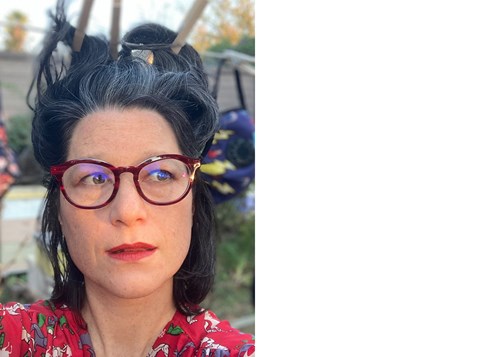
Erika is a performance maker, choreographer, and director interested in expanding ideas around how performance is created and shared. Shuch co-founded For You, a performance collective that brings diverse strangers together and makes performances as gifts. For You has been commissioned to create work by Court Theatre, The Momentary, Oregon Shakespeare Festival, Guthrie and Theater Mu with support from Creative Capital, New England Foundation for the Arts, and Berkeley Rep’s The Ground Floor. Erika has worked as a choreographer for theatres across the country including Theatre for a New Audience, Hudson Valley Shakespeare, The Arena, Oregon Shakespeare Festival, Round House Theatre/Getty Villa, Pittsburg Public, Portland Center Stage, American Conservatory Theater, Folger Theatre, and Kennedy Center. Directing credits include Iron Shoes with Kitka and Lily’s Revenge, Love Act by Taylor Mac at the Magic Theatre. Erika was a finalist for SDC’s Fischandler award and is a Bay Area Fellow at Headlands Center for the Arts. (she/her/hers)
Amy had the great pleasure of working with director Les Waters on casting for 20 of his productions. While serving as casting director and artistic associate for Berkeley Rep from 1990–2020, she cast over 200 productions and received a Casting Society of America’s Artios Award for Excellence in Casting for Angels in America by Tony Kushner, directed by Tony Taccone. Film casting: Jacob and Josh Kornbluth’s Haiku Tunnel and Love & Taxes, Redemption Trail by Britta Sjogren, The 8th Year of the Emergency by Maureen Towey. MFA Brandeis University, BA Binghamton University. Amy is currently a performance coach for Stand & Deliver, a global firm specializing in communication and leadership consulting, where she has served clients such as Cisco, Genentech, Google, State Fund, and How Women Lead. (she/her/hers)
Berkeley Rep: Hand to God. First national tour of Daniel Fish’s Oklahoma! (also original Fisher Center at Bard production), Heidi Schreck’s What the Constitution Means to Me (also Amazon film, Broadway, Barrow Street, and NYTW). Notable regional productions: Most Happy directed by Daniel Fish (Fisher Center at Bard), Whitney White’s The Amen Corner (Shakespeare Theatre, DC), Les Waters’ production of Lucas Hnath’s The Thin Place (Actors Theatre of Louisville). Notable NY productions: Slave Play (Artios Award for Casting, Broadway, NYTW, upcoming CTG production), Broadway casting for Tina Satter’s Is This a Room and Lucas Hnath’s Dana H, Clare Barron’s You Got Older (P73), Mia Chung’s Catch as Catch Can (P73), Anne Washburn’s 10 out of 12 (Soho Rep), Aleshea Harris’ Is God Is (Soho Rep), An Octoroon (Soho Rep and TFANA). Virtual: Ratatouille: The TikTok Musical benefit for the Actors Fund and The Great Work Begins fundraiser for amfAR. She has cast various productions in NYC and around the country. Theatres at which she has worked include NYTW, Soho Rep, Rattlestick, Theatre for a New Audience, Two River Theater, Fisher Center at Bard, Shakespeare Theatre (DC), Studio Theatre (DC), Arena Stage, Berkeley Rep, Seattle Rep, Actors Theatre of Louisville. Upcoming: Aleshea Harris’ On Sugarland and Sam Gold’s Three Sisters. TV: Casting assistant on Season 1 of Katori Hall’s P-Valley for Starz. (she/her/hers)
Michael stage managed over 100 productions for Berkeley Rep since arriving as an intern in 1984 and served as the Rep’s production stage manager from 1994 through 2020. He is euphoric to be back for Wintertime. (he/him/his)
Leslie is thrilled to be reopening Berkeley Rep with Wintertime after most recently stage managing The Good Book, Fairview, An Octoroon, Aubergine, and Head of Passes. She started at Berkeley Rep as the stage management intern in 2003 and has also worked at American Conservatory Theater, Aurora Theatre Company, California Shakespeare Theater, Center Repertory Company, and Santa Cruz Shakespeare. She has traveled with Berkeley Rep productions to the Hong Kong Arts Festival and the New Victory Theater in New York. Her favorite past productions include Angels in America, Aubergine, Bull in a China Shop, House of Joy, Sisters Matsumoto, The Great Leap, Passing Strange, The Lieutenant of Inishmore, and In the Next Room (or The Vibrator Play). (she/her/hers)
Assistant Director
Borna Barzin
Costumes
Janet Conery · Nelly Flores · Tasa Gleason · Kathy Kellner Griffith
COVID Safety Officer
Kathleen Parsons
Deck Crew
Bradley Hopper · Isaac Jacobs · Alaiya Morgane
Dialect Coach
Jessica Berman
Electrics
Travis Clark · Richard Fong · Cicily Gruber · William Hicks · Bradley Hopper · Jacob Joeseph · Jason Joo · Charis Lam · Joseph Lubman · Maggie Wentworth
Intimacy Coach
Maya Herbsman
Props
Katelyn Fitt · Garner Takahashi-Keene · Brittany Watkins
Scene Shop
Isaac Jacobs · August Lewallen · Carl Martin · Sean Miller
Mixer / A1
Courtney Jean
Sound
Sarah Jaquez
Wardrobe
Kaylee Pereyra
Medical consultation for Berkeley Rep provided by Agi E. Ban DC, John Carrigg MD, Cindy J. Chang MD, Christina Corey MD, Neil Claveria PT, Patricia I. Commer DPT, Brenton Dowdy DPT, Kathy Fang MD PhD, Steven Fugaro MD, Whitney R. Johnson DDS, Olivia Lang MD, Allen Ling PT, and Christina S. Wilmer OD.
* Indicates a member of Actors’ Equity Association, the Union of Professional Actors and Stage Managers in the United States.
This show has a 15-minute intermission.
Wintertime is made possible thanks to the generous support of
Season Sponsors
Bruce Golden & Michelle Mercer
Frances Hellman & Warren Breslau
Wayne Jordan & Quinn Delaney
Gisele & Kenneth F. Miller
Jack & Betty Schafer
The Strauch Kulhanjian Family
Sponsors
Felicia Woytak & Steven Rasmussen
Associate Sponsors
Dugan & Philippe Lamoise
Affiliations
The director and choreographer are members of the Society of Stage Directors and Choreographers, Inc., an independent national labor union. The Scenic, Costume, Lighting, and Sound Designers in LORT Theatres are represented by United Scenic Artists Local USA-829, IATSE.
![]()
Most of us will be familiar with the question, if a tree falls in a forest and there’s nobody around to hear it, does it make a sound? But if a stage goes dark in a pandemic and there’s nobody filling the space, is it still a theatre? We’ve spent a lot of time thinking about this over the past 20 months. However, this conundrum is now joyfully irrelevant, because YOU will be here to help bring Berkeley Rep back to life. To make us us again.
People have asked how we chose Wintertime as the show we wanted to return with. Because everything was so uncertain for so long, we had to plan to move ahead without knowing exactly what things would feel like when we finally started performing again. But we did know we wanted something that demanded real time and real space — a play that celebrated the immediacy of the theatre. Chuck Mee’s work was an obvious choice.
Chuck’s writing style embraces his medium with wholehearted gusto. Not beholden to realism, he instead uses it as a jumping off point to basically sample other forms of artmaking in order to create something entirely new and uniquely his own; much like the way a contemporary song might sample a bassline from a Motown record. This aesthetic of borrowing, honoring, and remixing is common for DJ’s and musicians, and Chuck has been a pioneer in publicly incorporating these ideas into theatremaking. He calls it “the (re)making project” and on his website, he invites anyone to: “pillage the plays as I have pillaged the structures and contents of the plays of Euripides and Brecht and stuff out of Soap Opera Digest and the evening news and the internet, and build your own, entirely new, piece — and then, please, put your own name to the work that results.”
The work that resulted for Chuck involves amplifying the trifles of everyday life and human interaction until they are writ so large they explode. Emotions erupt into something that transcends a customarily acceptable response. It’s truly no holds barred — no character is required to behave in a reasonable manner. Instead, they feel their feelings until they’re exhausted and spent. This might be hilarious or heartbreaking, but either way the extremes provide a satisfying catharsis.
The word “catharsis” goes way back to the Greeks, where it meant “to cleanse” or “to purge.” It’s a fitting idea, as Chuck’s characters seem to regularly seek out this kind of symbolic rebirth. Chuck looks to the Greeks often in his work, inspired by their grandiosity, their sense of spectacle, and the way they lean toward instead of away from intemperance. This grounds his work in some of our earliest theatrical ancestors, and lends it a palpable rootedness. It feels both ancient and contemporary, and offers us a rare and wonderful glimpse of a link with other humans going back thousands of years. A connection like this, with people who have come before us along with people who are here right now, provides a welcome antidote to our recent isolation.
The tone of Wintertime can be compellingly elusive. Many moments find us not knowing whether to laugh or cry, and then wondering if we’re bad people for doing one when we might be doing the other. But part of the beauty of Chuck’s work is that it not only forgives, but celebrates, all the glorious mess of being a person. The play says yes to all of it.
The people who have made this show happen, despite the 20 months of cobwebs and the continued navigating of this public health crisis, deserve the goldest of gold stars. It’s been no easy feat to get to this place, but we’re here. And in true Berkeley Rep fashion, you’ll encounter artists who despite everything, remain at the top of their game.
The simple, almost throwaway words “I don’t know” drip with subtext when they’re uttered by Thomas Jay Ryan. You’ll see how our prop and costume departments found solutions to vastly impractical problems with heroic ingenuity. A virtuosic performance from David Ryan Smith at the top of act two elicits a rollercoaster of response that’s a mini-play all unto itself. Choreographer Erika Chong Shuch showcases her trademark warmth and humor in a splendidly irreverent dance break. All of this culminates in a giant, raucous, love letter to this strange existence we all share.
We can certainly say we live in interesting times. It’s been a lonely year and a half, and we’re more than ready to share space with you again. The theatre ghosts need someone to haunt. The seats crave bodies. The lobby pines for hustle and bustle. The theatre is a living, breathing entity and it never really ceased to be so. It was just hibernating. We are awake once more and thrumming with life. Thank you for coming back to thrum with us. We can’t wait to see you.
Madeleine Oldham
Les has directed many Berkeley Rep productions over the years, and we love having him in the building. He possesses a series of theatrical superpowers that have earned him his well-deserved reputation as a consummate artist. Above all, he’s a listener. He listens to the text, to the people in the room, to the world around him. He listens for what feels right or true and works from there. Today, however, we got him talking. Berkeley Rep’s Resident Dramaturg and Director of The Ground Floor, Madeleine Oldham chatted with him about Chuck Mee’s Wintertime, and what it’s like to be back at the Theatre.
Why do you love this play?
The play has a lot of intimate scenes between two people talking about the state of their relationships: what is love, and how do you stay in love with one person? So it's constructed, in a way, like an opera — it has duets, and people sing these huge speeches. I mean, they don't actually sing them, but they're like arias. And then there are these huge physical moments where words fail people and all they can do is break chairs in frustration, or slam doors in each other's faces. Or go insane at the end of an act. And I love all that. I love its theatricality and I really appreciate what it says.
You have directed this play before. Has anything surprised you about revisiting it this time around?
When I first directed the play it was about 20 years ago, so I was almost 50. Now I'm almost 70, and I'm not the same person I was when I was 50. And these are very different times. So, the play shifts. Its meaning shifts. For both where it's situated in history, and also for me about where I am in my own life.
You’ve known Chuck for a long time. How did you meet him?
We met about 40 years ago on the steps of the Royal Court Theatre in London. I was directing a show there and a friend introduced us. After that, when I was living in London but working in New York, I would go and see Chuck. We first worked together on a play of his called Big Love at Actors Theatre of Louisville in the Humana Festival. And then it came to Berkeley and went on a tour around the country and ended up at BAM, the Brooklyn Academy of Music.
You tend to form lasting relationships with writers. How is it different working with somebody that you've had a long-standing relationship with versus somebody that you don’t?
The wonderful thing about working with somebody again and again, like with Chuck or Will Eno or Sarah Ruhl, is that you develop a shorthand. I mean, it's like any kind of relationship where you don't have to explain things in the depth that you had to before. You would sort of understand, if you are lucky, the territory that the writer's working in or what best suits their work. It's not necessarily easier, but it can be a quicker way of working.
Chuck has said many times that there are no original stories. Do you agree with this?
Probably. I think the joy and the hard work of it is to tell a story people know in an original manner... Well, maybe I'm wrong. Maybe new stories will appear. And some of the very, very old ones are rather magnificent.
Chuck pulls from the Greeks a lot. How do you feel about the Greeks? Do you like Greek plays?
I mean, I know Chuck loves them. I'm very new to all of this. I didn't study it at college. I've read one or two. I don't really understand them. I've seen very few and always found them a bit of a torment, but the way Chuck retells the Greeks, I find fascinating.
Have you ever directed a Greek play?
I've never directed a Greek play and I'm sure I never will. If somebody offers me one… well, what are the chances of that? No, I've never directed a Greek play.
Is anything different now from when you would go into a rehearsal before the pandemic?
So, like most people in the arts, I didn't work for almost two years. This is the second time I’m starting rehearsal as I’ve just directed Dana H by Lucas Hnath on Broadway. There are all the necessary COVID rules and regulations now, and it's interesting. I've never done a read-through of a play where everybody sits around a table with a cast that are fully masked. That’s challenging, because a lot of the time as human beings, we're trying to read the expression on somebody's face.
Can you talk a little bit about what it feels like to be doing this play right now, at this time in our world?
Well, I think over the past couple of years, the world really has shifted. With all the necessary campaigns for social justice, it's shifted how we view the world. And because we're social beings and we have relationships, if there's a huge paradigm change, a historical paradigm change, then relationships alter too. And talking personally, I am way older than I was before. So I now view the world through the eyes of an old person and not a middle-aged person.
You have a long history with Berkeley Rep. What’s it like to be back here after so long?
I worked at Berkeley Rep for a long while. I was the associate artistic director for eight years when Tony [Taccone] was here. And had directed here before that. So my relationship with the Rep is both long and deep. Also, I live here. My wife, Annie, who's the set designer on the show also teaches at Cal. So it's really delightful to be working at home.
Can you talk a little bit about the process of casting the show and whether you were looking for different things this time than you were last time?
I think the process of casting the show was really interesting because now the show is reopening the Theatre. It’s celebrating theatre in a general sense, but also Berkeley Rep in particular. There are several people in the cast who are known to Berkeley Rep audiences. And I think the other thing with casting any play is that you are looking for actors who can speak the language, who can speak Chuck Mee, where the words sit comfortably in their mouths and have a sense of theatricality. Because it's not realism per se and it's not naturalism. So it has its own particular grammar that you have to embrace.
You and your design team made a choice to not have much furniture in Act One. Can you talk a little bit about that?
The design now is very different from the original design (which Annie also did). When I was a boy, there was a very famous production of A Midsummer Night's Dream that Peter Brook directed, and the great Sally Jacobs was the set designer. And it was basically a big empty white box.
This set is a big white box. (Hello, Sally Jacobs, and thank you for everything.) The play's set in that really strange limbo bit of the year between Christmas and New Year. And so the ceiling is made out of tinsel, like you'd hang on a Christmas tree if you were into that kind of stuff. It's an empty box, three doors, a window, a ceiling of tinsel and no chairs. So we stripped everything out. And that's a real challenge in rehearsal because if you can't sit down, what do you do? Stand up, obviously, but how do you keep that interesting?
We’re talking as you are in mid-rehearsal. Is there anything you haven't figured out yet about the show?
We haven't figured out a lot of things. It's an entirely new cast from the original one. (I’m saying that with conviction, I think I'm right…) So I'm following what this cast give me to make it hopefully into a coherent whole.
Do you think that theatre, and the relationship in our culture with theatre, is different after the pandemic or will be?
I think now, habits of going out to see things have changed. I mean, hopefully, because we are social, people will want to gather again and witness something as a group. One of the things I've always loved about theatre is that you can go and see something and be sitting next to somebody you've never met and will probably never meet again, and that you are all there to pay witness and make space for something that's been created for you.
But, if you've spent almost two years not doing those things because of a pandemic, and you got comfortable with that, there could be a new way of how you perceive the world. I mean, personally I don't want to relate to the world all the time via my iPhone or my TV (although I watch Netflix all the time and it's extraordinary). So I think it'll be a long, complicated, possibly bumpy road ahead. And I have no idea what's going to happen. And that's exciting for the most part. You react to the world that you live in.
You have a book coming out. Want to tell us a bit about it?
Yes. The book's edited by Scott T. Cummings and it’s called The Theatre of Les Waters: More Like the Weather. “More like the weather” is part of a quote from John Cage, who's a personal hero. So I wrote some of it, Scott wrote a lot of it, various friends and colleagues wrote articles about me and how I work and it will be published in January of next year.
And how does it feel to be a person who has a book about you coming out?
It's very flattering. And it makes me feel very slightly deceased.
Wintertime features a plethora of glorious music, from Puccini to Bruno Mars. Enjoy this playlist of music referenced in the script and featured in our production.
Inspired by the heights of romance in Wintertime, we built a playlist titled When Love is Grand. It’s collaborative; please add your favorites! Anything you listen to when you’re feeling excellent about your love life.
As evidenced in Wintertime, love isn’t all fun and games. The Love Struggle Bus is a collaborative playlist with songs for the hapless aspects of romance: loneliness, scorn, jealousy, regret, despondency, things of that nature. Add your go-to breakup anthems.
By Ashley Lim
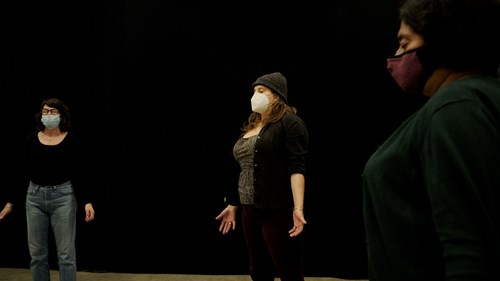
In many ways, the art of theatre-making is like capturing lightning in a bottle: with the right people gathered together at the right moment, it is possible to capture that elusive spark of magic that lives at the heart of all storytelling. Berkeley Rep’s School of Theatre is well practiced in cultivating that spark through programming designed to resonate with audiences and unite people across diverse communities through the art of theatre. Whether it’s uplifting the narratives of teen playwrights in an annual Teen One-Acts Festival or giving adult students the tools to tap back into their imagination, Berkeley Rep’s School of Theatre plays an integral role in fostering generations of creative, ambitious artists.
When stages across America went dark in the face of a global pandemic, Berkeley Rep’s School of Theatre faced a unique challenge: how do we continue to serve students and inspire artists to cultivate their most creative work at a time when the transformative crucible of live, in-person theatre is on hold? Before the pandemic, the School of Theatre annually served around 20,000 people throughout the Bay Area, including workshops in over 3,600 classrooms, and over 130 different classes for youth, teens, and adults. Despite being unable to meet in person over the last year, the School has made the remarkable achievement of serving the same number of students through virtual classes as in seasons past, having adapted its dynamic engagement opportunities to best serve artists, storytellers, and community members in this digital moment.
The year 2021 also marks a special milestone for the School of Theatre — founded in 2001, this year is the school’s 20th anniversary season. While the year may not have been what anyone expected for the School’s special anniversary, it’s more evident than ever that resilience is at the foundation of all Berkeley Rep programming. “I’m so proud of the incredible teachers at the School of Theatre!” praises MaryBeth Cavanaugh, Associate Director of the School of Theatre. “We moved so quickly in just a matter of weeks. After talking for hours with our teachers and brainstorming ideas for classes that would work on Zoom, we developed a dynamic range of classes that focused more on the individual artist to help them harness their imaginative potential. It seemed like the perfect time for our students to confront themselves as committed artists and to get back into class to do the individual work that they hadn’t had the opportunity to delve into deeply before.”
Acting, voice, improv, and writing classes may have looked a little different over Zoom meetings, but Berkeley Rep teaching artists adapted their curriculum to better suit the virtual space and resonate with this moment in our shared history. “I focused my Physical Theatre class on solo work.” MaryBeth explains. “I witnessed my students taking more risks and diving deeper into their work possibly because they were all grappling with a new level of isolation but also and in contrast, an interesting level of comfort… as they were in their own space, as well!” The shift to virtual learning has opened an exciting number of new opportunities to engage in theatre-making with artists from around the globe. In the past year alone, you could catch a student from Guatemala participating in a Physical Theatre class, call in from Germany for an acting intensive, meet someone from France in a text workshop, or exchange ideas with someone from Japan in class focused on Theatre and Racial Justice.
Still, our eagerness to return to live theatre-making has only grown, and after a year of all-virtual programming, the Berkeley Rep School of Theatre is thrilled to lead the Theatre’s reopening efforts with its return to in-person programming ahead of the mainstage opening of Charles L. Mee’s Wintertime. Starting in September, students from across the Bay have eagerly returned for the School’s first round of limited-capacity and socially-distanced in-person classes. The energy and enthusiasm in our classrooms is palpable, whether students are swinging broadswords in an adult Stage Combat class, or swinging by after school to rehearse scenes for our High School Acting Intensive. As we emerge from this pandemic with a renewed enthusiasm and appreciation for this art, the School is excited to invite you to rediscover the magic of in-person theatre-making.
By Katie Craddock
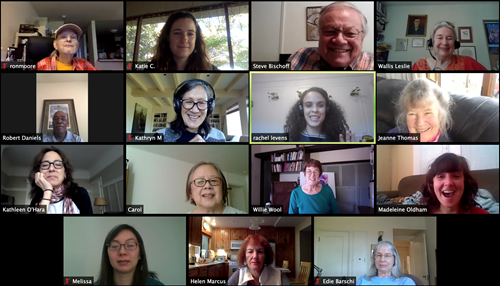
When shelter-in-place began in March 2020, suddenly shifting many interactions to a video-conferencing platform heretofore unknown, my knee-jerk attitude towards said platform was one of suspicion and irritation. Was it Zoom’s fault our plays, rehearsal studios, shops, and offices were shut down? No, but it’s a paltry 2D replacement for the pleasures of work at a theatre — sharing pretzels at the end of a long technical rehearsal; biting your nails side-by-side at first preview; inheriting rejected outfits from the costume shop; chatting with audience members in the bathroom line about what they think will happen in Act Two.
As we grumpily bellowed “you’re muted!” at each other for the rest of March, we racked our brains for ways to safely connect with our audience and our art form, over what we hoped would be the next few months before everything returned to normal (!). We decided to start a book-club-for-plays. On Zoom, naturally. We’d host two Monday evening sessions and two on Tuesday afternoons. They’d be free and open to anyone who wanted to come. Our artistic director, Johanna Pfaelzer, resident dramaturg/director of The Ground Floor, Madeleine Oldham, director of our School of Theatre, Anthony Jackson, and I would take turns moderating the discussions. We approached our first sessions, held in late April 2020 to discuss Sarah Ruhl’s How to Transcend a Happy Marriage, apprehensively: does anyone want another Zoom call in their life? Would folks show up? Is it possible to have a nuanced conversation about a play online?
As it turns out, it is! We were bowled over by the insightfulness, expansive curiosity, and warmth of the people who showed up that first day, and who have continued to show up over the past twenty months, honing their abilities to analyze theatrical writing with rigor and heart. All kinds of participants came out of the woodwork: longtime subscribers, but also students from our School of Theatre, folks who’d seen their first show here right before the lockdown, and audience members who moved away years ago but retained a fondness for Berkeley Rep. As the weeks went on, we amassed an eclectic reading list, covering a wide range of forms and content — plays that related to what was happening in the world; plays we haven’t produced by writers our audience already loves; plays by writers who’ve developed work at The Ground Floor; and other great pieces we thought might be unfamiliar to many. Week after week, people called in. From the Bay Area, but also from all over the U.S. and abroad — from Louisville and Brooklyn to London, Sydney, and Paris. Participants are undergrads, teachers, retirees, doctors, artists, and more.
Even when people were confounded or irked by something we read, they’d show up with questions and an open mind, frequently departing intending to reread the piece with fresh understanding. Relationships developed; each session has its devoted regulars and its own flavor, an alchemy of group-chat wisecrackers, guest-starring pets, irreverent banterers, and diligent dramaturgs. Through elections, wildfires, and virus variants, we’d spend our hour together reveling in metaphor and puzzling over stage directions, dissecting the machinery of theatrical writing and collectively imagining it come to life.
Every time we say our reluctant goodbyes and log off, I think, “These are my people.” And: “This is why we make theatre.” It’s the richness, pleasure, and flashes of insight that come from dialogue — from asking each other true questions and genuinely listening with an openness to changing our minds. It’s the magic of a necessarily collaborative art form: one that depends entirely on strangers willingly coming together, bringing their disparate backgrounds, generations, perspectives, and tastes to make greater meaning from a story than we ever could alone.
Inspired by the joys of What’s in a Play?, we’re hosting four postshow discussions in the same style over the course of the Wintertime run.
What’s in a Play? has hosted over 150 sessions so far, welcoming over 2,500 participants. As Berkeley Rep has moved back into the rhythms of live producing, we’ll continue to host What’s in a Play? gatherings on a quarterly basis in 2022. In our off months, the groups are hosting self-moderated discussions, which delights us to no end. We hope you’ll join us in the New Year!
By Daria Hepps
During the past 17 months, while Berkeley Rep was dark, many people continued to make gifts to support the theatre. We are deeply grateful to all our Resilience Campaign donors, and particularly those who, like Gisele and Ken Miller, stepped forward with a transformative gift to help Berkeley Rep emerge from the pandemic ready to thrive. Gisele and Ken are passionate theatregoers, and they are equally passionate about bringing young people to the theatre. I spoke with Ken recently about his love of theatre and his hopes for the future.
How did your love of theatre start?
When I was young, maybe 14 or 15, we lived in Michigan. My mom was an extraordinary theatre-lover, and my dad worked for an auto company (Ken’s dad, Arjay Miller, was president of Ford Motor Company), and he would travel from Detroit to New York quite often. In fall of ‘63 I went to boarding school in Connecticut, and we would meet up in New York, and inevitably, [my parents] got me interested in theatre. Given that I was young, it was mostly musical comedy at first. We saw the original Broadway productions of How to Succeed in Business and Promises, Promises – from ’63 to ’68, I saw maybe 10 Broadway shows a year. When we lived in Detroit, we went to Shakespeare in Stratford, Ontario, then we went to the real Stratford on Avon – my parents were kind enough to take me on a number of their trips, so I got to see Olivier in Othello at the Old Vic [in London] in 1964 and in The Merchant of Venice in 1970. Then my dad left the auto business in 1968 and came out to Stanford (as dean and professor of management at the Stanford University Graduate School of Business) and they were early patrons of ACT. I didn’t go as often with them as I had before – I had a job – but I always enjoyed it. After Gisele and I got married, I went to more shows with my parents. The more you get exposed to it, the more you get captivated by the whole process.
What’s important to you about sharing theatre with young people?
The more young people we can expose to theatre, the better. To me, it’s such an extraordinary art form, and given the nature of the venue and the interaction between the audience and the performers, I think it’s the most intimate of all major art forms. When Jeff Daniels was doing To Kill A Mockingbird on Broadway, afterward, he came out and talked to the audience for several minutes. He’s somebody I really admire. We saw that show twice during the holidays, and at the matinee, it was just phenomenal, it was at least half teenagers, and I remember telling Gisele, boy it sure is nice to see. I mean, Aaron Sorkin isn’t writing for 17-year-olds, and the fact that they could absorb this and all the themes of the show is just terrific. And you could see that [the teens] were taken by the fact that they could see the actors 15 to 20 feet away from them. That’s different than taking your seat in a movie and seeing the characters 30 feet tall on screen.
Do you think that people absorb the issues more if they are seeing a show live?
No doubt in my mind. We went to a student matinee of Becky Nurse at Berkeley Rep, and we stayed for the talk-back – [the kids asked] some very intelligent questions, and you could see the cast-members and the kids really interacting. I’m very happy getting youngsters into that mindset. I was so lucky that my parents had the wherewithal to expose me to the extent they did.
The Berkeley Rep School of Theatre is celebrating its 20th anniversary this season. In the last 20 years, tens of thousands of young people have seen shows at Berkeley Rep, interacted with world-renowned artists, trained with Berkeley Rep’s experienced professional staff and teaching artists, developed their leadership, collaborative, advocacy, creative, and technical skills, and connected with other arts-engaged young people from all over the Bay Area and around the country. What do you hope the School accomplishes in the next 20 years?
More of the same! I was very impressed with Johanna when Gisele and I met with her and Susie. She was very sharp and insightful. Johanna said it was important to her to really try to relate to younger people. And that makes sense. A great director or producer, when they are trying to coax a great performance out of someone, they have to deal with people as individuals. So the more enthusiastic mentors that you get into this program teaching these youngsters… When you are dealing with students, most kids are pretty sharp in terms of how they’re relating to adults, and 20 years from now, I would hope that whoever makes the decisions in the hiring and the administration of Berkeley Rep’s educational programs would just pick the best people possible. Whatever you can do to get more young people in so the audience demographic doesn’t keep skewing older and older.
And that’s part of the fun of live performance, too. People of different ages and backgrounds react to things differently, and when you go to the theatre, you are experiencing other people’s reactions as you are reacting, and that creates a fuller experience for you.
I agree completely. Sometimes we’ve had the opportunity to go to a dress rehearsal, which is fine, but it’s not as satisfactory, because there would only be a handful of people other than Gisele and I. The pandemic has changed everything, but before that, we quit going to movies in the afternoon, because there would be only 10 people in the audience, but if you go at night, you get a reaction from 50 to 100 people. That’s part the appeal of live theatre – to see how other people are reacting to it.
What are you looking forward to the most when you come back to Berkeley Rep?
Just seeing so many happy people coming out of the Theatre. That lobby in the Roda is always a kick. Just people animatedly discussing aspects of the play. It’s such an immersive experience. I’ve always been critical of critics because they have to be critical. But to me – we live in Woodside, and it takes us an hour to drive each way. If we go and we’re able to say to ourselves afterward, we’re very happy to have spent those four hours doing what we did, the whole experience has been a success. I’m looking forward to doing more communal stuff. Given the nature of Berkeley Rep and other audiences in the Bay Area, I think people will just like to get back and associate with each other. Would you agree?
Absolutely!
What’s in the Narsai M. David Courtyard?
As we emerge from the longest intermission in Berkeley Rep’s history, we are ready for awe, and ready for you. We’ve decked out our courtyard to welcome you back to our theatrical home. Enjoy the lights, the trees, the music, the cheer… and even snow!
The Giving Grove Project
The Giving Grove Project is a new values-based holiday initiative inspired by the Theatre’s desire to be in greater service to the community. Collaborating with seven Bay Area nonprofit organizations that provide food and housing, immigration support, and youth development, Berkeley Rep invites our audiences to join in supporting these impactful organizations that are addressing systemic inequities in our local community. Holiday trees in the courtyard are dedicated to each of these community service organizations and will remain on display throughout the run of Wintertime.
Participating nonprofits

Wintertime sponsors
Warren and Frances are avid watchers of live theatre, which includes Berkeley Rep and an annual pilgrimage (when COVID allows) to London's West End. Having loved Berkeley Rep for years, they are thrilled to sign on as 2021/22 season sponsors. They are very proud of the cutting edge, exceptional theatre that Berkeley Rep continuously produces. Frances' day job is as Professor of Physics at UC Berkeley and Warren is a Machinist and Welder at 5th Street Machine Arts.
Gisele and Ken have long been patrons of local theatre. They are particularly pleased to be able to help a variety of Bay Area organizations attract younger arts lovers. They are encouraged that Berkeley Rep and other groups have done a truly remarkable job providing opportunities for so many young people to enjoy the experience of live productions, whether on the stage or in the audience. Gisele is a former nurse and Ken is a retired national and foreign editor for three Bay Area newspapers.
Betty and Jack are proud to support Berkeley Rep. Jack is a sustaining advisor of the Theatre, having served on the board for many years, and is now on the board of San Francisco Opera. He is an emeritus board chair of the San Francisco Art Institute and the Oxbow School. In San Francisco, Betty is involved with Wise Aging, a program for adults addressing the challenges of growing older. She serves on several non-profit boards. They have three daughters and eight grandchildren.
Felicia and Steve believe that high-quality programs in the arts and education are essential to a vibrant community. They are strong supporters of Berkeley Rep because of its outstanding contribution to the production of thought-provoking and risk-taking theatre, as well as its enormous contributions to arts education at the Berkeley Rep School of Theatre and in Bay Area schools. Felicia is a member of Berkeley Rep’s board of trustees. She is a real-estate investor/developer and together with her husband, Steve Rasmussen, owns Palisades Vineyard and Veeder Ridge, two vineyards in Napa Valley. Their recently launched wine brand, Au Revoir Wines, produces wines from their two estate vineyards. Felicia also sits on the Board of the Calistoga Winegrowers. Steve is a national and international consultant in mathematics education and curriculum development.
Bay Area Rapid Transit (BART) is the backbone of the Bay Area transit network serving five counties throughout the region. BART’s all-electric trains make it one of the greenest and most energy-efficient transit systems in the world. We encourage our riders to visit bart.gov/welcomeback as the region continues to reopen as we safely welcome you back. To learn more about great destinations and events that are easy to get to on BART (like Berkeley Rep!), visit bart.gov/bartable. At BARTable, you can find discounts, enter sweepstakes offering fantastic prizes, and find unique and exciting things to do just a BART ride away. While you’re there, be sure to sign up for BARTable This Week, a free, weekly email filled with the latest and greatest BARTable fun!
Peet’s Coffee is proud to be the exclusive coffee of Berkeley Repertory Theatre and the namesake of Berkeley Rep’s state-of-the-art Peet’s Theatre. In 1966, Alfred Peet opened his first store on Vine and Walnut in Berkeley and Peet’s has been committed to the community ever since. Supporting Berkeley Rep’s high artistic standards and diverse programming is an extension of this mission. As the pioneer of the craft coffee movement in America, Peet’s is dedicated to smallbatch roasting, superior quality beans, freshness, and a darker roasting style that produces a rich, flavorful cup. Peet’s is locally roasted in the first LEED® Gold certified roaster in the nation.
Berkeley Rep thanks its community of supporters who play a vital role in furthering our mission to create ambitious theatre that entertains and challenges its audiences, provides civic engagement, and inspires people to experience the world in new and surprising ways.
